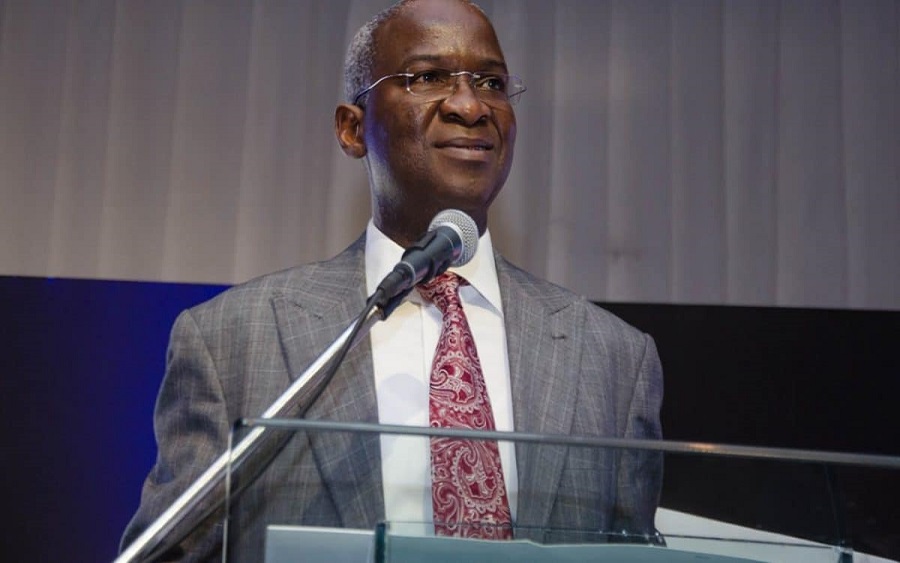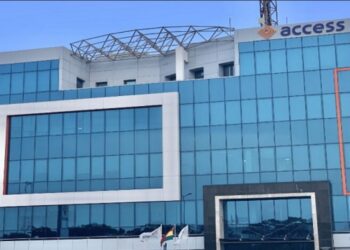Recently, the Minister of Works and Housing, Babatunde Fashola disclosed that the Federal Government is currently constructing affordable homes in 34 states of the federation. According to the Minister, this is part of the fulfilment of the model National Housing Programme, which is aimed at providing acceptable and affordable houses for Nigerians.
There have been various initiatives by the Federal Government to bridge Nigeria’s huge housing deficit, unfortunately, most of these initiatives have not yielded their desired results. We recall that the Federal Mortgage Bank of Nigeria (FMBN) established in 1956, (originally known as the Nigerian Building Society) had the strategic intent of supplying the mortgage and housing markets with sustainable liquidity in order to support the advancement of homeownership amongst Nigerians.
[READ MORE: Global Markets: U.S Fed delivers another rate cut]
However, more than 60 years down the line, FMBN is yet to deliver affordable and modern houses to majority of Nigerians, despite the obvious untapped opportunities in the housing market.

In order to fulfil the mandate of FMBN, the bank was restructured into a Federal Government-Sponsored Enterprise under the reform of the housing sector based on 2002/2006 National Policy on Housing and Urban Development. This exercise birthed National Housing Fund (NHF) – a fund established with the objective of mobilising long-term funds from Nigerian workers, banks, insurance companies and the Federal Government to advance loans at soft interest rates to its contributors.
Under the NHF, all workers are to contribute 2.5% of their monthly salaries and loans are advanced to eligible workers at an interest rate of 6% per annum. The FMBN has the primary responsibility of managing and administering the Fund.
According to the FMBN, Nigeria’s housing gap is estimated to be in the region of 17 million units while homeownership is estimated at a low 25%. In our view, the challenges working against the development of the housing sector can be attributed to a plethora of factors ranging from low access to mortgage financing amid high cost of finance (c.22%-25%), rising costs of constructing houses attributable not only to the cost of factors of production but also regulatory costs of building or owning houses (Surveying fees, Certificate of occupancy, land settlement costs), shrinking disposable income particularly among the middle income earners.
[READ ALSO: Power: DisCos remain the weakest link]
Given that private sector participation in the low-end of the housing construction market has been limited, we believe that a more aggressive intervention by the government in subsiding mortgage financing and increased investment in housing development, will go a long way in bridging the housing deficit and help realise the improvement in homeownership that it desires.
______________________________________________________________________
CSL STOCKBROKERS LIMITED CSL Stockbrokers,
Member of the Nigerian Stock Exchange,
First City Plaza, 44 Marina,
PO Box 9117,
Lagos State,
NIGERIA.

























The problems of home ownership is really not as complicated as we have been made to believe. The truth is yes challenges will arise but if a better approach is adopted then we should see tangible results. For instance, the cost of home ownership in say a decent area in Lagos is between 45-80 Million naira. A couple of problems are already established here. High valuation, and virtually low mortgage availability. However, this problems are limited to urbanized areas. If low income houses were to built in rural areas where cost of ownership will drop to say around 5-10 Million Naira and proper infrastructure (ie road and rail accessibility) are provided, then we will see a massive urban-rural migration. Not only will this help rural areas develop but will drastically reduce accommodation costs in urban areas. If a functional rail system can be implemented that for example transports commuters from abeokuta (ogun state) to ikeja (lagos stare) in say 30 minutes, the dynamics would greatly change. Or if one could travel from Ogbomoso (Oyo State) via rail to Apapa (Lagos State) in 1hour. Scores of people would move to Ogbomoso and work in apapa.
So we see that the problem of home ownership is as a result of a combination of problems. But generally speaking good and efficient accessibility is always a key requisite of development.